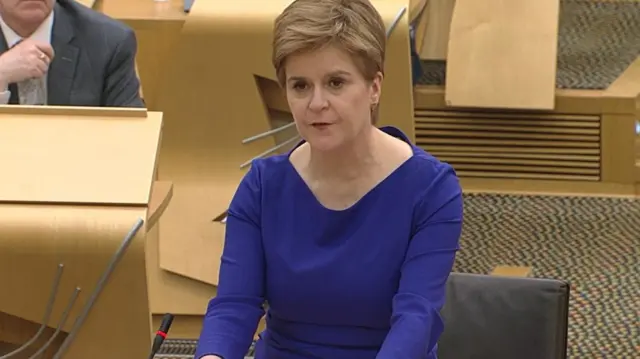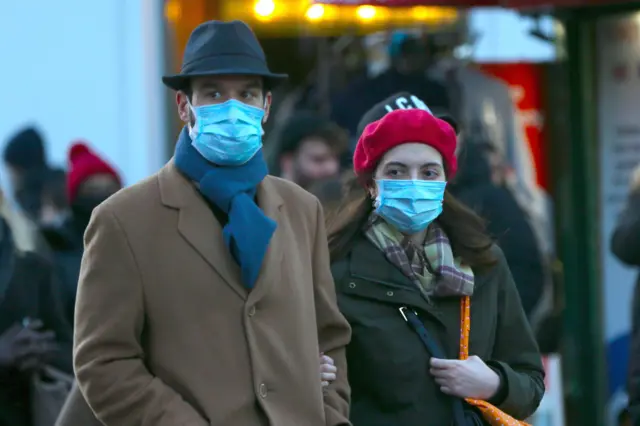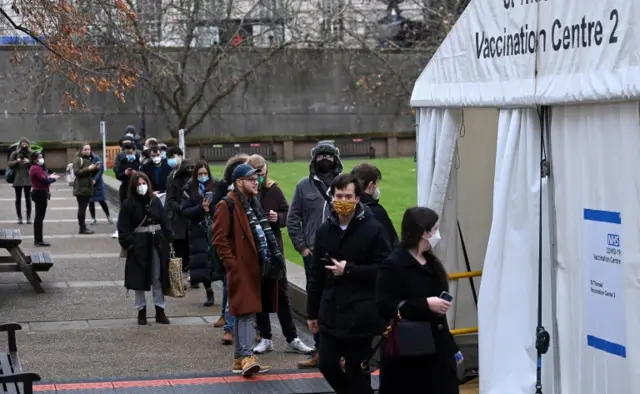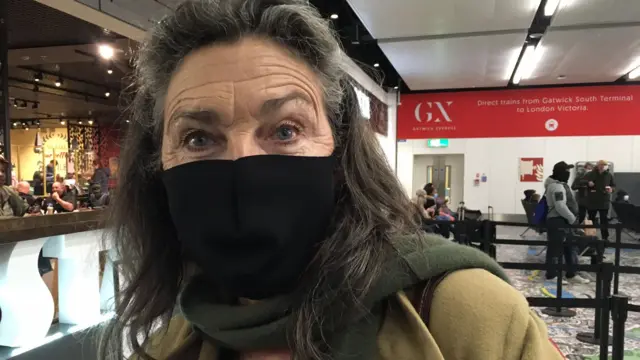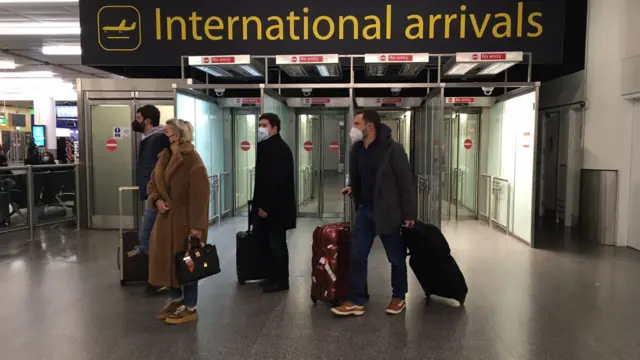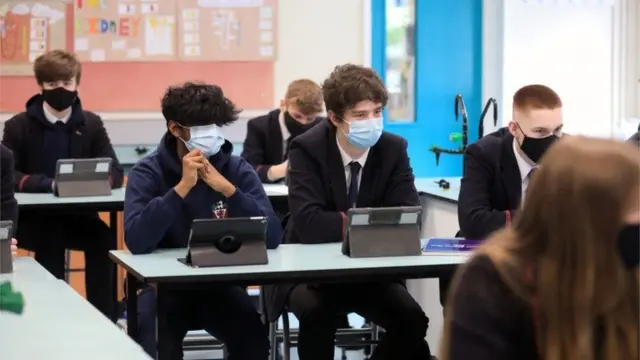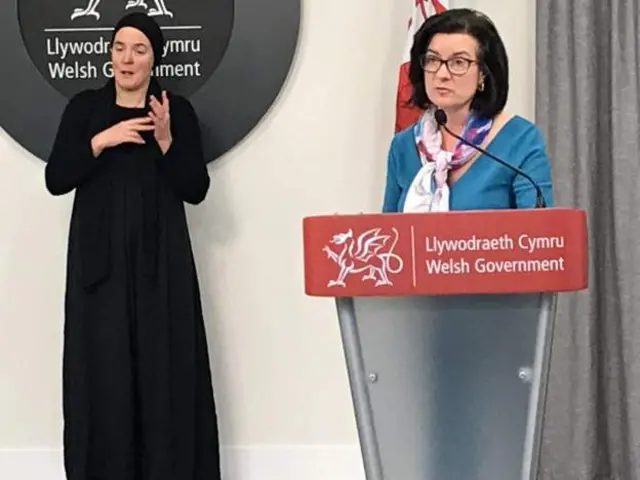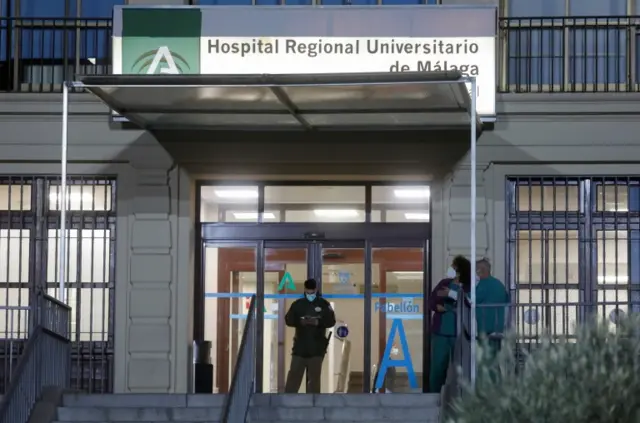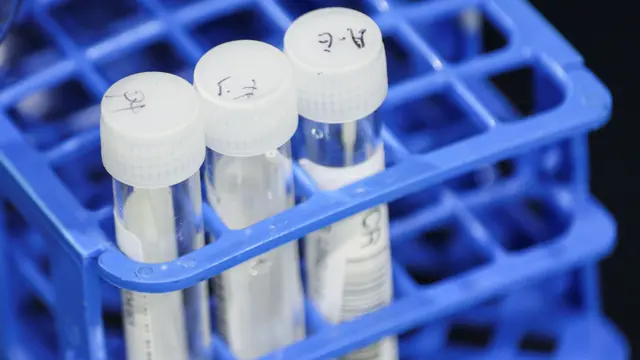Reasonable degree of certainty Omicron is more transmissible - Sturgeonpublished at 14:47 GMT 7 December 2021
There is a reasonable degree of certainty that the Omicron variant is more transmissible than Delta, "perhaps considerably so", Nicola Sturgeon says.
The first minister adds that early data suggests it is more capable of infecting people who have previously had the virus.
There is also concern it may evade the immunity provided by vaccination, she says.
However, she says vaccination remains "vitally important".
